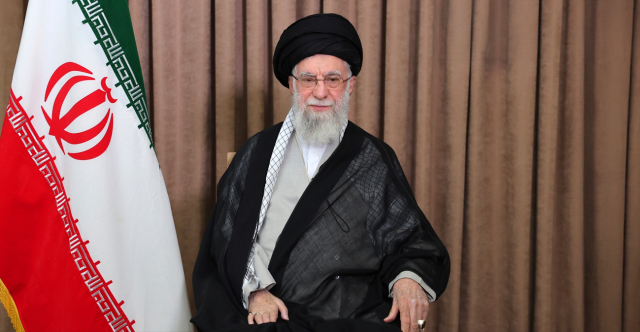Certainly! Here’s a rewritten version of the content:
—
Israel’s military actions targeting key sites in Iran represent just one facet of the broader challenges faced by Tehran’s regime. More significantly, Israeli intelligence has effectively transformed not only Tehran but also its entire border region—especially critical aspects of its infamous nuclear program—into an extension of Tel Aviv.
Iran’s current response offers some insights, yet the exact strategic direction it intends to take remains ambiguous. For a nation that has maintained a staunch opposition to the West since 1979, the situation poses unprecedented challenges for Iran’s Supreme Leader and the Revolutionary Guards—a military group established to protect the regime from its own national forces.
For Iran as a state, there are several potential avenues that could lead to a different, albeit uncertain, future. However, the options available to the clerics in power are significantly more restricted.
The Perilous Balance of Survival…
If Tehran’s leadership assesses the damage inflicted on its nuclear and military sites and believes it can still pressure the U.S. to rein in Israel—even at the expense of negotiating with Washington—then it may opt for that trajectory while simultaneously targeting Israeli interests to appease its domestic audience.
If the damage to the nuclear program merely postpones its intended milestones by a few years, then a proposal from Trump might be viewed as a crucial lifeline. Conversely, if the destruction of facilities and personnel makes the program untenable, Tehran would face a stark choice: engage in conflict or face annihilation.
Ironically, this scenario echoed in a recent meeting between Benjamin Netanyahu and a group of visiting U.S. senators who attempted to persuade him to delay his course of action since October 7, 2023.
Should a significant uprising arise in Iran, the theocracy would have no choice but to fight fiercely. If conditions become overwhelmingly dire, the mobilization of Iran’s arsenal—a capacity whose full extent is even uncertain to informed circles in the U.S.—could become a real threat. This scenario is precisely what Israel fears: that following recent attacks, which caused three fatalities—the first in this prolonged conflict—a desperate stand by the regime could result in extensive casualties and significant damage to Israeli urban areas.
The U.S. Must Intervene—Netanyahu’s Unwavering Strategy
The ongoing crisis in the Middle East is unprecedented, and its resolution is likely to reshape the region for the foreseeable future. The stakes are immense and global, necessitating a robust, multifaceted re-engagement from the U.S. If rumors in Washington regarding presidential awareness of the attack are accurate, serious concerns arise.
Effectively managing this situation demands substantial diplomatic efforts and an understanding that failure could yield far-reaching repercussions beyond local impacts. Critical decisions should not be confined to a small circle; future regional stability must not be jeopardized, irrespective of ongoing developments.
Trump may not be content with short-term solutions; he must pursue—or insist on—long-term strategies. Achieving this will require not just Iran’s acquiescence or desperation, but also Israel’s cooperation.
Netanyahu, having navigated his dealings with Biden, has also managed to maintain rapport with Trump. U.S. strategies have not shaken him, nor have political maneuvers intimidated him. He continues to adhere to the plan he established, facing no setbacks or changes. While circumstances shift, his firm stance remains essential for the U.S. if it seeks more than another ravaged nation, aiming instead for a sustainable peace in the region.
Israel is poised to emerge from this crisis significantly strengthened and more assured that any future threats will remain dormant for decades. However, it must also acknowledge that time and circumstances will eventually catch up with even the most powerful nations. In this context, Israel needs to engage in constructive discussions—making commitments for a post-crisis future.
Ask Me Anything
Explore Related Questions

















